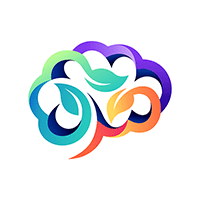Case Studies
Case Study 16: Stretching Sixth Form Scientists
This case study shows how a school raised the standards and motivation of its most able scientists at AS and A level by offering extension activities.
Background
- mixed 11 to 18 comprehensive
Implementation
- increasing the range of extension and enrichment activities on offer to sixth-form scientists by sharing ideas across the department
- establishing good links with local universities
Impact
- better grades at AS and A level
- successes in competitions
- better interviews at university and in the industry
- greater student enjoyment of, and interest in, the subject·
- enhanced staff subject knowledge
Background
The school had a history of satisfactory A-level results in the sciences. However, few students gained top grades and gifted students were often less successful in sciences than in their other subjects. The school also noticed that numbers fell after the AS year.
It felt that there was a need to inject some new excitement into the sciences through extension opportunities in the syllabus and enrichment activities in the wider curriculum.
Implementation
Opportunities for extension activities had been discussed on several occasions at team meetings and the science department decided to allow an extra column for extension challenges in its schemes of work. The A-level subject specialists used their subject knowledge to share ideas and, as a result, offered all A-level students two key opportunities:
- researching, preparing and delivering a presentation;
- conducting an experiment of their own choice.
For their presentation, the students were asked to choose a topic that really interested them and to carry out research that met, and where possible went beyond, the requirements of the subject specification. If students felt unable to cope with a presentation on their own, staff allowed them to take part in a paired presentation.
The topics chosen by gifted students included:
- investigating sources and effects of the components of acid rain;
- using entropy and free energy values to predict and explain reactions;
- researching and explaining the use of radioactive dating methods;
- researching the history of synthesis of well-known drugs and medicines;
- carrying out an in-depth study of some common enzymes and their effects;
- investigating the variation of breathing rates (and analysing gas emissions) with exercise, using a wide sample of people;
- investigating the science behind the fuels of the future;
- summarising the lifecycle of the stars;
- studying the Earth’s magnetism in the atmosphere;
- explaining common misconceptions or fallacies in science.
Preparing a presentation provided individual assessment opportunities for communication key skills at level 3. Question and answer sessions at the end of each presentation contributed further evidence. Many students also developed other key skills, such as the application of numbers and problem-solving.
The second extension activity involved students conducting an experiment of their own choice. This could either be a new experiment that they had devised themselves, or a repeat of a well-known experiment. The aims of the activity were to:
- encourage students to think of themselves as ‘real scientists’ when planning and carrying out experimental work;
- stress the value of practical skills;
- improve students’ practical techniques.
Both presentations and practical tasks were monitored using formative assessment aligned to subject assessment criteria. The school also monitored students’ work rate, interest and attendance at all lessons; whether deadlines were met; exam results; and retention rates in the subject to year 13.
Some took up these challenges with growing enthusiasm as their gifts became evident (eg their ability to read widely around a subject, to call on facts to back up their ideas, to recognise patterns easily, and to accurately predict the possible outcomes of their experiments).
To build on this success, the school offered a range of other initiatives to enrich the curriculum and develop gifted sixth-form scientists, including:
- visiting the local university’s science labs to try some of the advanced equipment that they would use on a university science course;
- entering regional and national competitions, such as ‘Young Scientist of the Year’, the BA Crest Award and the new BA Science Communicators Award (the presentations were good preparation for this);
- attending open lectures organised by the Royal Institution and local Association for Science Education (ASE) groups;
- visiting a local observatory to use the telescope;
- setting up a senior science club.
The science department also asked two local university tutors to contribute to the scheme for gifted students by sharing ideas and visiting the school.
Impact
The school’s extension activities for advanced scientists had a wide range of effects on gifted students, including:
- more A and B grades at AS and A levels;
- evidence of better interviews at university and in industry;
- greater enjoyment, interest and expertise in science;
- more independent learning and innovative thinking as a result of their research and presentations;
- lifelong learning habits in planning, handling information, carrying out individual research and using ICT to find new information;
- better skills in communication, application of numbers and problem-solving, with scientific evidence contributing to level 3 key skills qualifications;
- greater confidence and skills in practical work.
The activities also enhanced staff subject knowledge, as teachers from across the department shared ideas.
In the future, the school plans to introduce group debates (in teams of three) on scientific issues such as pollution, cloning and radiation. These will probably take place in senior science club and may be judged by local university staff. The leading teams will then be offered the chance to enter the BA Science Communicators’ Award competition.
